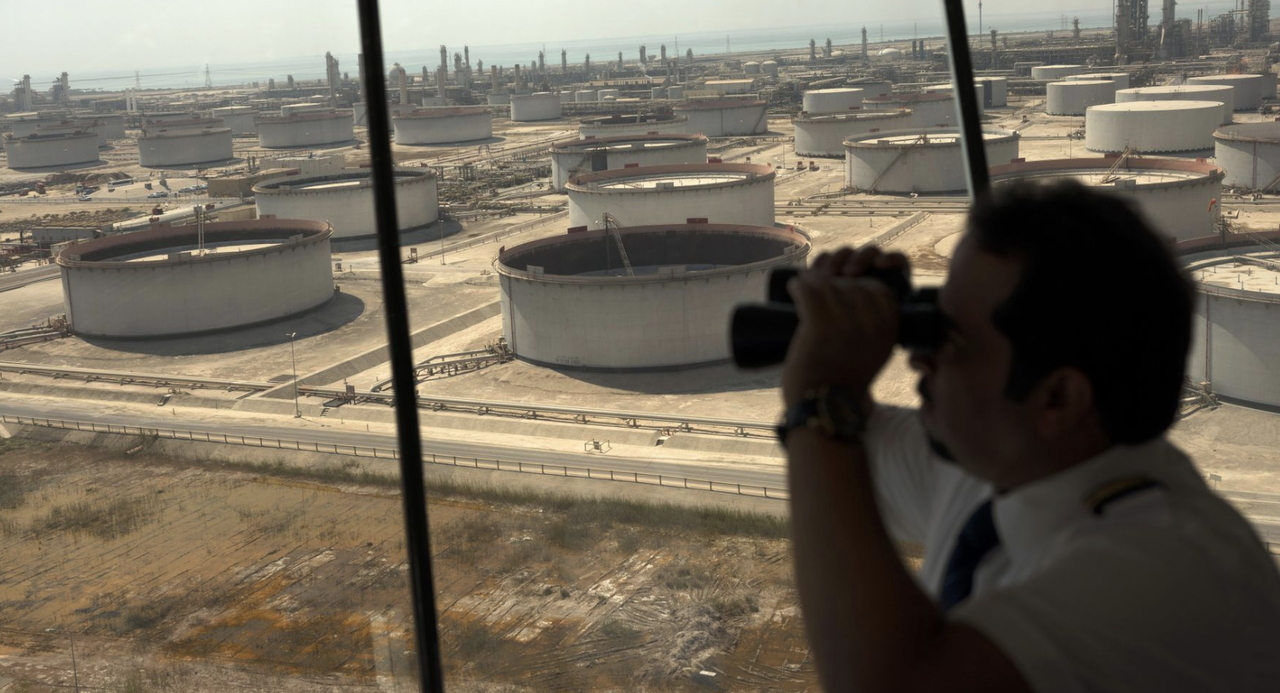Oil Rises As Saudi Extends Production Cuts Through April
President Trump isn't going to like this.
Offering the first indication that the OPEC+ cartel of major oil exporters intends to extend cuts, Saudi Arabia has reportedly told its clients that they will receive significantly less oil than they had requested in April, extending deeper-than-agreed oil production cuts into a second month, Bloomberg reported.

The report, which provoked a spike in oil prices, suggests that "Riyadh is determined to regain control of the oil market as prices remain well below the level that many OPEC members need to cover their government spending."
However, the extension isn't all that surprising: Responding to Trump, who demanded in a tweet that OPEC do something to curb rising oil prices, Saudi Energy Minister Khalid Al-Falih said last month that "we are taking it easy, 25 countries are taking a very slow and measured approach."
Oil prices getting too high. OPEC, please relax and take it easy. World cannot take a price hike - fragile!
— Donald J. Trump (@realDonaldTrump) February 25, 2019
Aramco, Saudi's state-owned oil producer, has given customers their allocations for the next month, and they're some 635,000 barrels short of what refiners had asked for.
With Venezuela output falling further due to U.S. sanctions and power blackouts, oil refiners put in requests - or nominations in industry jargon - for Saudi crude of more than 7.6 million barrels a day for April, the person said. However, the kingdom will supply overseas customers with less than 7 million barrels a day, 635,000 barrels less than refiners asked for however, they said.
The second consecutive month of deep production cuts shows the world’s largest oil exporter is determined to re-balance the market more quickly even though events in Venezuela have left some refiners short of crude. The crisis has worsened a deficit of so-called heavy-sour crude that many refiners use to make diesel.
Saudi Aramco, the state-owned oil monopoly, decided its monthly nominations over the weekend and told clients early on Monday their individual allocations. Although not identical, Saudi crude can be used as an alternative to Venezuelan crude and is also a good alternative for Iranian oil, also in short supply due to U.S. sanctions.
OPEC+ agreed late last year to cut production by 1.2 million barrels a day through the end of March as producers scrambled to reverse a stunning drop in oil prices late last year. The cuts have sent exports - primarily to the US - tumbling.
Of course, right now, the opportunity to have an outsize impact on the global oil market is almost too good to pass up for Saudi, as falling Venezuelan crude output and the coming expiry of US waivers on Iranian oil sales could continue to cut into supplies, particularly since Saudi crude is a good substitute for Iranian and Venezuelan crude, unlike US shale oil.



